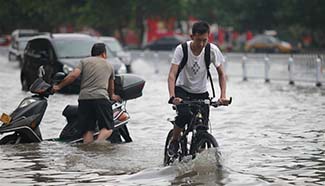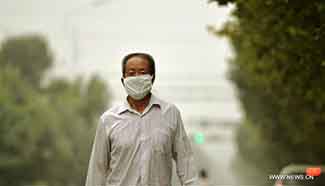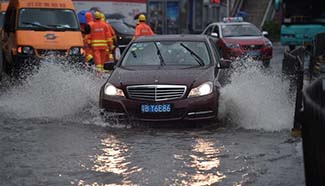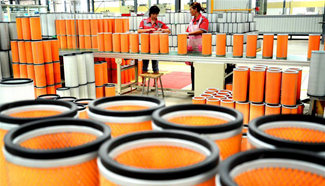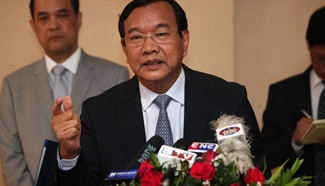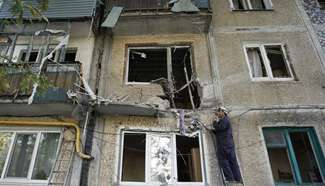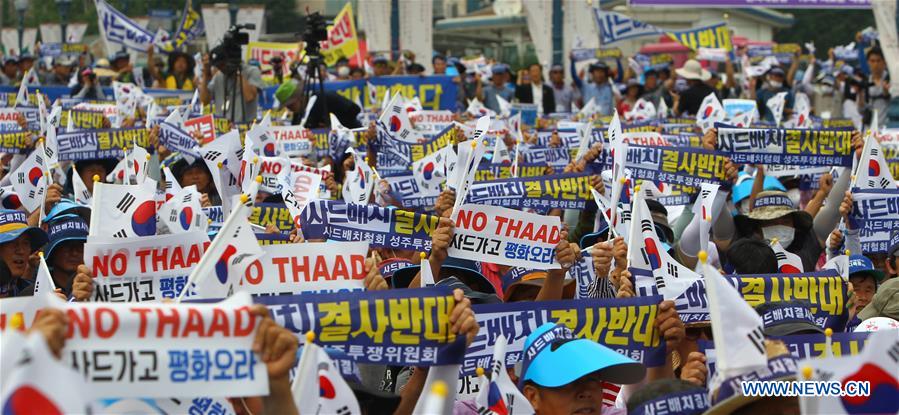
People from Seongju county hold the national flags of South Korea and banners to protest against the deployment of the Terminal High Altitude Area Defense (THAAD), during a rally in Seoul, capital of South Korea, on July 21, 2016. More than 2,000 people from Seongju county, where one THAAD battery will be deployed, gathered at a square in Seoul for a rally on Thursday, to protest against the deployment of THAAD. (Xinhua/Yao Qilin)
by Qu Junya, Xin Jianqiang
BEIJING, Aug. 2 (Xinhua) -- The joint decision of Washington and Seoul to deploy the U.S. Terminal High Altitude Air Defense (THAAD) system in South Korea damages the mutual trust and cooperation developed with China by threatening China's strategic security interests.
The move, regardless of China's repeated opposition, undermines the foundation of their strategic cooperative partnership at a time when it actually should be deepening.
The decision to deploy THAAD breaks the regional strategic balance by tying South Korea to the U.S. chariot of Asia-Pacific re-balancing.
With the system's X-band radar commanding surveillance of an area that extends over 1,200 miles (about 1,900 km) from the Korean Peninsula, the United States can spy on almost half of China's territory and the southern part of Russia's Far East, endangering the two countries' national security.
Such a system challenges Seoul's argument that it is only directed at missile and nuclear threats alleged from the Democratic People's Republic of Korea (DPRK). As it fits well into Washington's planned anti-missile shield against China in the Asia-Pacific, some South Korean media have commented it as a result of humiliated diplomacy and a move to serve U.S. hegemony.
Seoul has chosen to defy China's security concerns and its promises made to China on the THAAD issue, despite the criticism at home. It had tried to keep the months-long consultations with Washington on deployment details from public knowledge, and to fool its people by denying local media disclosures of agreements being reached on the schedule and site only three days before it announced the THAAD deployment.
Worse, the announcement was timed to precede, by five days, an ill-grounded ruling on the South China Sea arbitration initiated unilaterally by the Philippines. And only one day after the ruling was issued, it hastily made a statement on where THAAD would be deployed.
Seoul is expected to find the moves, in such an ill-chosen sequence, are diplomatic miscalculations by underestimating China's determination and capability to defend its national security.
Despite valuing the fruits of efforts to develop bilateral ties, China can by no means allow Seoul to harm its security interests. Seoul's decision has erected a barrier to closer relations with China, and even jeopardized them.
Seoul should tread carefully and consider whether a THAAD system would really address its security concerns and the nuclear issue on the Korean Peninsula.




